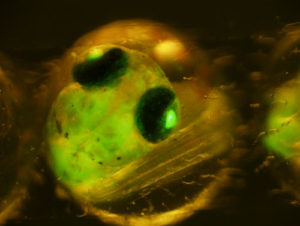FOOD – NUTRACEUTICALS
Demonstrate the Efficacy of your Final Product or Ingredient
We assess in human volunteers the functional effects of a specific treatment with food supplements or nutraceutical compounds during a determined period, through quantification by blood analysis (hemogram, glucose, cholesterol, urea, creatin, uric acid, HDL, LDL, urine analysis, etc.).
In the same way, these analysis allow us to determine the metabolic and immunological prolife of the individual, looking for possible improvements in global health.
Results are statistically analyze in a exhaustive manner, with the objetive to obtain the necessary statistical significance to validate the functionality and effectiveness of the product.
ASK FOR INFORMATION
In Bionos we use animal models like mice (Mus musculus) zebra fish (Danio rerio), medaka fish (Oryzias latipes) and worm (Caenorhabditis elegans), on which we can analyze the efficacy and functionality of a determined compound after specific treatment. For this, we quantify physical parameters (weight, intake, spleen and liver weight, etc.), biochemical (glucose, cholesterol, triglycerides, etc.) and hormonals (resistin, leptin, adiponectin, etc.) in the different animal models.
In the same way, we have set up obesity models through feeding with high fat diets (HFD), both for mice and fish models.
ASK FOR INFORMATION
We analyze the toxicological effects of a determined treatment in mice (Mus musculus), zebra fish (Danio Rerio), medaka fish (Oryzias latipes) and worm (Caenorhabditis elegans), through analysis of phenotypical biomarkers, microscopy, hepatotoxicity, etc.
ASK FOR INFORMATION
We quantify the functional effects of a product or ingredient on the expression of genes involved in fatty acid synthesis (FAS, ACC1, SERBP1), fatty acid degradation (PPARa, ACO1, CPT1) or glucose metabolism (GADPH, ALDA, GPI, GLUT-1), after feeding individuals with the product and obtaining samples from liver.
ASK FOR INFORMATION
We analyze the effects on amylase activity and phospholipase A2 (PLA2), involved in lipid metabolism, after feeding mice or fish with the product and high caloric diet (HFD), using DQ Starch and PED6 substrates.
In the same way, we analyze the effects on glucose levels reduction, through blood analysis system.
ASK FOR INFORMATION
We analyze the capacity of a determined treatment to improve the endogenous regeneration in mice and fish, through image analysis of the skin, after inducing small wounds on the surface.
ASK FOR INFORMATION
TEST YOUR PRODUCTS
Do you have any questions or doubts?
Fill in the contact form and we will reply as soon as possible.
CALL US
+34 96 124 32 19
CONTACT
bionos@bionos.es
VISIT US
Av. Fernando Abril Martorell, 106.
Hospital La Fe, Torre A, Planta 1.
46026 Valencia


